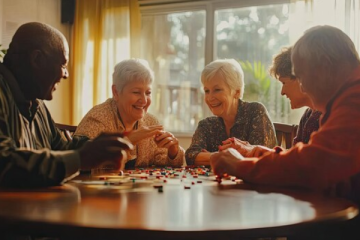Why Is Culturally Sensitive Therapy Important for South Asian LGBT Clients?
Given the intricate intersection of cultural, social and familial norms that South Asian LGBT clients must navigate through, culturally sensitive therapy is crucial for them. These individuals often grapple with substantial hurdles such as societal stigmatization and discrimination both within their ethnic group and in wider society.
In view of these challenges they face; it becomes imperative to provide culturally sensitive counseling geared towards meeting specific needs while creating an atmosphere respectful of their cultural backgrounds – one which promotes mental health wellbeing among this demographic.
Understanding The South Asian LGBT Context
South Asian LGBT individuals are typically constrained by intense cultural norms that prioritize family reputation, societal standing, and community solidarity. These values can generate considerable strain on non-conforming members who must navigate internal struggles due to heteronormative pressures. Coming out is a daunting prospect for many as it risks bringing discredit upon loved ones, spurring rejection or forfeiting support networks. Additionally, conservative attitudes towards sexuality in South Asian cultures frequently identify same-sex orientations as taboo or morally impermissible exacerbating their anxieties further.
Culturally sensitive therapy plays a crucial role in catering to the needs of South Asian LGBT clients by tackling their distinct cultural complexities. Culturally competent therapists are well-equipped to comprehend and address the intricate interplay between familial responsibilities, societal norms, and personal identity conflicts that these individuals encounter. By adopting an inclusive approach, therapists can establish a welcoming environment that acknowledges their clients’ experiences while validating their identities – thus fostering acceptance and instilling a sense of belonging among them.
Difficulties Encountered by LGBT People from South Asia
1. Expectations and Pressure from Family
Family serves as a crucial foundation for social organization and individual recognition among several South Asian societies. LGBT individuals frequently encounter substantial stress to adopt heteronormative standards since family respectability often supersedes personal aspirations. Failing to meet parental or extended familial expectations can result in severe emotional turmoil, deterring people from opening up about their sexuality or seeking assistance.
Therapists who are sensitive to South Asian cultures recognize the significance of family and make a conscious effort to handle these complex dynamics with care. They grasp that accommodating clients’ cultural values is imperative while also guiding them towards reconciling their sexual identity within this context.
2. Discrimination and Social Stigma
Social stigma and discrimination are common experiences for South Asian individuals who identify as LGBT, facing it from both their ethnic communities and the wider society. The compounded marginalization can deepen feelings of isolation, anxiety, and depression. Additionally, a lack of representation or positive role models within their cultural framework may perpetuate a sense of alienation.
When therapists are sensitive to cultural nuances, they possess the tools necessary to tackle these matters. Providing clients with a space that’s non-judgmental and encouraging allows them to develop skills for coping with discrimination while advocating their rights amongst peers. These empathetic professionals empower those belonging within South Asian LGBT communities by enhancing resilience and cultivating self-love within one another.
3. Concerns regarding Mental Health
South Asian LGBT individuals may experience various mental health issues due to the intersection of cultural pressures, social stigma and internalized homophobia. A significant number of this population suffers from depression, anxiety and suicidal ideations; compounded by a limited availability of culturally informed mental healthcare resources.
Effective mental health treatment demands therapists to be culturally sensitive. Such therapists possess an understanding of their clients’ cultural backgrounds and can design interventions that align with the latter’s experiences and perspectives on life. By going beyond conventional therapeutic methods, these professionals integrate relevant customs and outlooks, thereby improving the healing process while advancing emotional wellness.
The Role of Culturally Sensitive Therapy
1. Establishing a Strong Foundation of Trust and Connection
Creating a safe and welcoming environment for South Asian LGBT clients is of utmost importance in establishing trust and rapport with their therapist. Previous experiences of judgment or rejection may have left them hesitant to seek help, hence culturally sensitive therapists prioritize ensuring that they feel understood and respected throughout the entire therapeutic process.
Therapists can exhibit cultural humility and foster a robust therapeutic alliance by being boundless and adopting an unrestricted outlook that embraces their clients’ distinctive experiences. This approach entails being receptive to learning from them, which is indispensable for successful therapy sessions.
2. Validating Experiences and Identities
Validating the experiences and identities of clients is a crucial element in culturally sensitive therapy. For South Asian LGBT individuals, societal and familial pressure can lead to shame and guilt. By helping them reframe these emotions, therapists facilitate self-acceptance and foster feelings of compassion towards oneself.
To have an unrestricted therapeutic approach, it is essential to acknowledge the varied and interconnecting identities of South Asian LGBT clients. It involves understanding how their cultural background, religion, and community affect their situations. One should provide assistance in navigating these intricate aspects of self-identity.
3. Empowering Clients
The objective of culturally responsive therapy is to strengthen clients’ self-esteem and autonomy through being boundless. For South Asian LGBT persons, who confront systemic obstacles and prejudices, their therapeutic endeavors must concentrate on cultivating resilience and promoting advocacy abilities for essential experiences.
Therapists have the ability to boost their clients’ confidence by urging them to fully embrace who they are and championing for their rights in society. Through unwavering encouragement, therapists can assist individuals in discovering their voice and asserting themselves within both cultural spheres as well as overarching social arenas.
4. Integrating Cultural and Therapeutic Practices
Incorporating cultural traditions and beliefs that have significance to South Asian LGBT clients is a crucial aspect of culturally sensitive therapy, which involves fusing such practices into the therapeutic process. Traditional healing methods, religious convictions or customary ceremonies may form part of this integration.
Therapists who adopt an unrestricted approach are capable of connecting Western therapeutic models with the cultural contexts unique to their clients, ultimately improving therapy’s relevance and effectiveness. This amalgamation has the potential to benefit South Asian LGBT individuals by making access to treatment more widely available and advantageous.
Conclusion
For South Asian LGBT clients, it is crucial to receive culturally aware therapy as they encounter distinct struggles at the convergence of cultural, social and personal identities. Therapists who adopt an all-inclusive approach can provide a therapeutic setting that recognizes and honours their clients’ cultural roots while affirming their realities. Such efforts enable them to tackle challenges stemming from complex identity intersections with self-assuredness.
Culturally sensitive therapy plays a crucial role in establishing trust, acknowledging individuals’ experiences, empowering them and incorporating cultural practices into the therapeutic process. This approach can be particularly beneficial for South Asian LGBT communities as it greatly improves their mental health and well-being by offering them much-needed support and empathy. By constantly enhancing their skills of compassion, comprehension, and multiculturalism therapists ensure that these clients receive deserved care to lead fulfilling lives.



